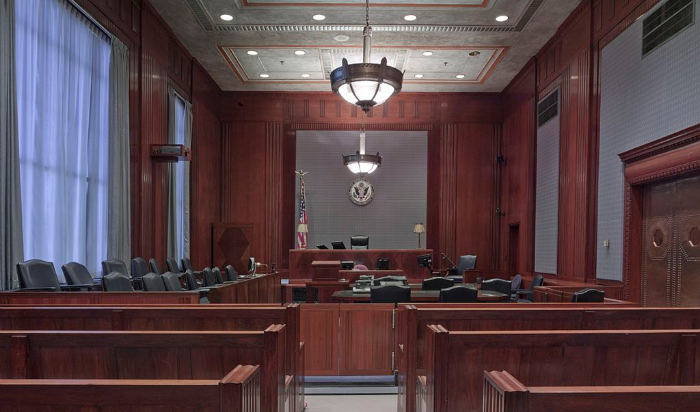After getting into a car accident, navigating the complex world of personal injury claims can be confusing. Many people assume that legal representation is only needed when a trial appears imminent. However, having a skilled attorney by your side can prove invaluable.
An experienced attorney will guide you through the process, advocating for your rights and striving to secure a fair settlement for your injuries. Insurance companies are also more inclined to offer settlements to your attorney, as this saves them the trouble of going to trial.
At Ranz Injury Law, we help you demystify the legal process. In this article, you'll learn distinctions between car accident settlements and trials, enabling you to decide on the best action for your unique situation. Contact Ranz Injury Law today for a free consultation about your specific case.
Differences Between Settlement and Trial in Car Accident Cases
The world of car accident cases can be intimidating, filled with terms that are difficult to understand. However, let's break it down. After an accident, your first step usually involves filing a claim with the at-fault driver's insurance company, intending to seek compensation for your medical expenses and other accident-related losses. This step should always be done under the guidance of a personal injury attorney.
A settlement offer may be a possible result, where the insurance company agrees to pay you a specific amount of money to resolve your claim. In return for the settlement, you, the injured party, would generally agree to release any further liability associated with the accident.
If the insurance company refuses to agree to a reasonable or fair settlement, your next step might be to file a personal injury lawsuit for your financial losses. At this point, a trial is likely to occur. Your attorney will gather the evidence, prepare your case, and present it to a judge or jury. At that point, either the judge or jury will ultimately make a final decision and just resolution.
What are the Benefits of Out-of-Court Settlements?
Settling your case out of court has several advantages. Firstly, it often fast-tracks your case resolution, allowing you to access the funds you need much sooner than the protracted court process.
It usually takes less time to negotiate a settlement with an insurer than to schedule a trial, potentially concluding within a matter of months. Opting for a payment also keeps your personal information confidential, unlike court verdicts, which are public record. Moreover, settling your claim minimizes the risk and uncertainty of the trial's outcome.
What are the Disadvantages of Out-of-Court Settlements?
It is essential to recognize that settling out of court may entail lower compensation. If you're grappling with life-altering injuries that need ongoing medical care, you might require more compensation for your pain and suffering.
Insurers sometimes employ delay tactics, prolonging negotiations to pressure you into accepting a lower settlement. Once a settlement is accepted, it is a permanent decision, and the option to pursue additional compensation is forfeited even if your medical conditions worsen. This is why it is imperative that you have a personal injury attorney advocating for you every step of the way.
What are the Advantages of Taking Your Case to Trial?
Going to trial comes with certain advantages. A jury's verdict may garner more compensation than a pre-trial settlement. While insurance companies often negotiate within policyholder coverage limits, jury verdicts don't have such restrictions, which increases your chances of obtaining maximum compensation.
In court, your case will receive an impartial evaluation. A fair and unbiased review is what you can expect in court, with the jury making their assessment solely on the merits of your case and the evidence presented.
There's also a possibility of seeking punitive and compensatory damages. Unlike compensatory damages covering financial losses, punitive damages are a monetary penalty levied against the at-fault party in cases involving gross negligence or misconduct. Although relatively rare, your attorney can assess your case to determine if seeking punitive damages is feasible.
What are the Disadvantages of Going to Court?
Despite the potential benefits, taking your case to trial demands much preparation and patience. Forbes recently reported that the average time between injury and settlement is about 11.2 months. Due to court backlogs, the process is very time-consuming, and it could take a year or more to secure a hearing for your personal injury case. It's important to note that since court proceedings are public records, your details become accessible to the public. If privacy is a concern, there are better options than a trial.
The last thing to consider is the cost and risk of pursuing a trial. There's never a guarantee of victory, and pursuing a trial takes time and resources.
What Percentage of Car Accident Cases Go to Trial?
Research shows that only three percent of personal injury lawsuits from car accidents go to trial. The time, costs, and additional resources required to bring a case to court often lead to most cases being settled outside of court.
Get Legal Help from Our Experienced Personal Injury Lawyers
If you're overwhelmed by car accident claims' complexities, the dedicated injury lawyers at Ranz Injury Law are here to guide you. Contact us at (206) 944-5237, and let us help you secure compensation for your injuries. Our winning case record demonstrates our expertise and commitment to your well-being.


